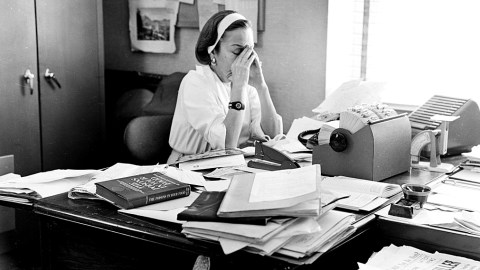A 6-Hour Workday: America Should Follow Sweden’s Lead

I’m personally very grateful for the 40-hour work week, given that we’d probably still be pseudo-slaves if not for the efforts and sacrifices of late 19th-century labor demonstrators. I’m glad for the eight-hour workday because it beats the heck out of a 12-hour workday and a 100-hour work week. That said, it’s entirely possible that a six-hour workday would be even better for all parties involved, and not just because I’m looking to spend more time zapping through my Netflix queue.
Consider Sweden, a country that’s frequently regarded as one of the world’s most awesome (in spite of the shade my friend Orion Jones likes to throw its way). More and more Swedish companies have begun experimenting with the six-hour workday — and many of them are sticking by the switch after being pleased with the results. The argument in favor generally begins like this:
“I think the eight-hour workday is not as effective as one would think. … Some people would argue that [a six-hour day] is a costly measure for the company, but that is based on a conventional conception that people are effective 100 percent of an eight-hour day.”
Enacting a six-hour day is fairly simple. You ask your employees to minimize personal business (that means no social media), discard useless meetings, and encourage folks to spend more time with their families and on restful activities…
That’s Linus Feldt, CEO of Stockholm-based app developer Filimundus, as quoted in this piece by Adele Peters. Feldt explains that his company’s work-hour reduction has led to more-focused employees wasting a whole lot less time on non-work tasks and in pointless meetings. It’s also given Filimundus and similar firms an opportunity to prove they’re dedicated to their workers and value their lives outside of the office. That’s the sort of thing that nips turnover in the bud.
Boston College professor Juliet Schor thinks Americans work too much. Compared to the rest of the world, they do.
Think about it this way: What do you value more, time or money? Would you rather have a 40+ hr/wk job that pays well or a 30 hr/wk job that pays a little less, but offers you the chance at more freedom? Either choice is acceptable depending on your priorities and ambition, but I’d hazard a guess that the 30-hour gig would be a lot more popular with job seekers.
Will the six-hour workday ever gain traction in the United States?
Enacting a six-hour day is fairly simple. You ask your employees to minimize personal business (that means no social media), discard useless meetings, and encourage folks to spend more time with their families and on restful activities so they’ll be ready to go-go the next day. Companies like Filimundus have found that cutting away the inefficiency that comes with the long workday allows them to get as much done in six hours as they did in eight, but with much happier employees.
Will the six-hour workday ever gain traction in the United States? I have some serious doubts; we, as a culture, are awfully set in our ways, even if our ways are dumb and ineffective. But maybe some forward-thinking, labor-friendly employer will find a way to pull it off while maintaining steady profit. We’ll just have to wait and see.
—
Robert Montenegro is a writer, playwright, and dramaturg who lives in Washington DC. His beats include the following: tech, history, sports, geography, culture, and whatever Elon Musk has said on Twitter over the past couple days. He is a graduate of Loyola Marymount University in Los Angeles. You can follow him on Twitter at @Monteneggroll and visit his po’dunk website at robertmontenegro.com.
Read more at Fast Company.





